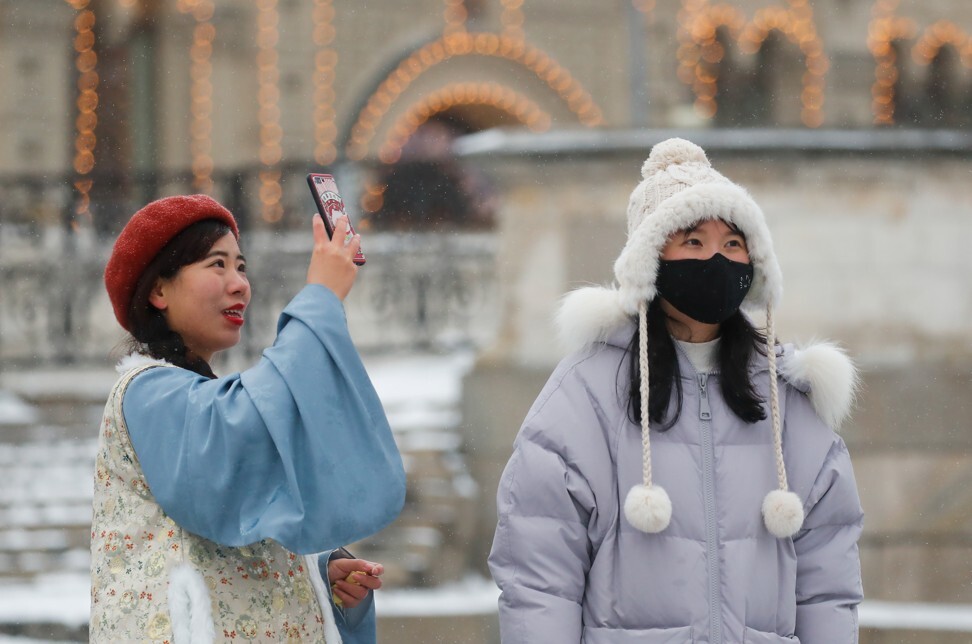Opinion / How artificial intelligence could jump-start the luxury sector – with China’s help

Last year in April, I had the privilege of leading a panel on artificial intelligence in luxury at the Sotheby’s x Jing Daily Future of Luxury Conference in Hong Kong. Around 100 luxury brand leaders across Asia came together to discuss digital disruption in the luxury industry. One of the questions raised was whether I thought technology – and, in particular, artificial intelligence – would replace creativity. In other words, will fashion designers and luxury brands become less creative as advanced technologies emerge?
Why would luxury brands use artificial intelligence?

At first glance, it may sound strange to connect luxury with artificial intelligence. After all, many people think of luxury as craftsmanship. In its extreme form, luxury is seen as a handmade piece of art. For centuries, luxury brands were known for mastering the most delicate artisan tasks, such as building and perfecting a tourbillon movement in a mechanical watch or designing and finishing fine porcelain. In haute couture, designers and their teams meticulously combined incredibly rare fabrics artistically. Many luxury cars became collectors’ items. It’s not by chance that many museums feature luxury items in their exhibitions. So why the emergence of artificial intelligence?
Why fashion and luxury will never be the same after coronavirus
Luxury is younger than many expect and more female
Our world is changing rapidly, and the speed of change is accelerating at ever-increasing rates. Even before the coronavirus, I spent most of my projects and masterclasses on supporting luxury brands in coping with change. Take luxury cars as an example. A few years ago, the typical buyer was in his or her 50s or 60s, and he or she would sometimes would take years to decide before pulling the trigger on a purchase. Now many brands struggle to connect with young millennials and the emerging Generation Z. Those young, digitally-savvy consumers are more demanding than previous generations, and they expect brands to define the zeitgeist.

Particularly in China, now fewer than 20 per cent of luxury goods are bought by consumers older than 40. Instead, the sweet spot for luxury purchases in China is between 25 and 35 years. To the surprise of many luxury managers, luxury is female. Women do more than 75 per cent of purchases. Men do a significant part of their luxury purchases as gifts to their spouses and partners. Interestingly, many luxury brands ignore that and target older men instead.
This creates a gap between brands that make assumptions and brands that know. artificial intelligence is a tool that brands are increasingly using to generate faster, more precise consumer insights. They need to know who their customers are, what they think, how their perception and sentiment changes over time, and what they expect. With the speed of change, only real-time insights are relevant. The insights are generated by processing and analysing millions of conversations that people have about brands and topics across social networks and blogs. The sheer amount of data and its interconnection makes it necessary to use advanced data analytics tools, including AI based data intelligence systems, to make sense of what is happening.
Meet Joann Cheng, Lanvin’s interim CEO and chairwoman of Fosun Fashion
What do Chinese women want?

With Europe and the US in lockdown, many Western luxury brands have turned to China to restart their businesses as life gets gradually back to normal. Hermès reported record sales in some of its reopened flagship stores, and Louis Vuitton gave a positive outlook for April for some of its top brands. However, following the coronavirus outbreak, the world faces a new normal, where preferences and behaviours have changed, some permanently. One of the most important questions is: what do Chinese women want? Because not all brands will participate from the revenge shopping, now so popular in China following the lockdowns. Only brands that can connect with their customers will profit.
So, what do Chinese women want? It is crucial to have precise answers and not just assumptions. I was approached by operators of some of the most luxurious shopping malls and retail spaces in Hong Kong and mainland China. Their question: how could they improve store traffic? They had assumptions, but they were not sure. One of the largest luxury retailers in the world asked me how AI could help them to jump-start their business. They understood that guessing is not enough when perceptions change so rapidly. One emerging trend we see includes a stronger focus on life as a new luxury. Many people question if it is worth spending so many hours commuting in ever-growing cities, exposing themselves to pollution and health risks while having almost no quality time with their families.
AI as creativity driver

Brands that will be able to identify the particularities of this trend more precisely than others will have an enormous advantage. In essence, they can develop products and solutions that support consumers as they look for new answers. This will allow them to boost creativity, channel it towards relevant topics and address emerging insights.
How China’s luxury sector changed course during the coronavirus pandemic
Time is of the essence. The Covid-19 crisis has further accelerated the change and disruption of luxury. Consumers are longing for brands that make their lives more beautiful and fill them with emotion. They want brands that can influence and inspire them. They look for the ultimate experience. Creativity was never as important as it is now.
My verdict
Brands cannot stand still. Especially in times of rapid change, people are re-evaluating which brands they prefer. They will turn away from labels which they perceive as passive. Proactive companies that know how to connect with consumers in real-time will win. Technology is an enabler for brands to innovate and excite their customers. It does not replace creativity. It instead gives designers and brands precise guidance on where to focus and unleashes their imagination. Which brand will make most of this dawn of a new time? Which brand will excite us most with their creativity?
Want more stories like this? Sign up here. Follow STYLE on Facebook, Instagram, YouTube and Twitter .

Western brands such as Hermès and Louis Vuitton are looking to China to boost their sales as it recovers from the coronavirus outbreak, but many are considering how artificial intelligence can help them increase revenue